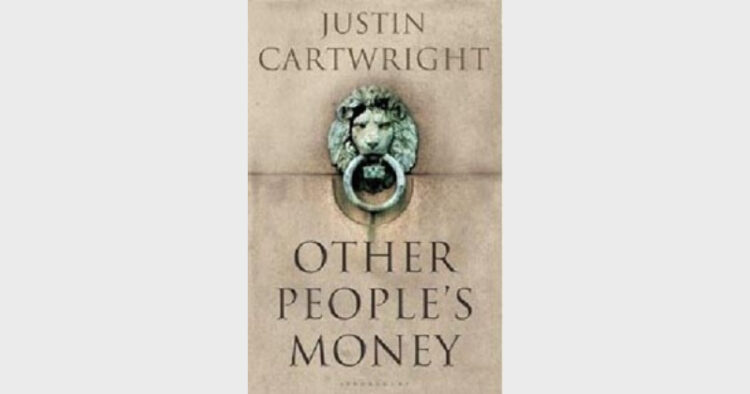BOOKMARK-3
By Dr Vaidehi Nathan
Other People’s Money, Justin Cartwright, Bloomsbury Publishing Plc, Pp 258 (HB), £18.99
Justin Cartwright’s latest novel Other People’s Money deals with contemporary theme of a bank going bust because of skewed financial practices. Here it is a 340-year-old family-run bank Tubal & Co headed by Julian Trevelyan Tubal while his father, Sir Harry, retired and ill keeps reminding him to keep off risk business. But like most of young generation Julian thinks he can pull off a stunt before it gets dangerous only to end up selling the bank.
There are a few players in the novel, the plot is rather uncomplicated. Julian has a brother Simon who goes away from the family business. They have a sister. Sir Harry had married a young actress Fluer who lives away in the city, occasionally visiting her ailing husband at Antibes. She has secret lovers. Sir Harry had made an arrangement with Fluer’s first husband, Artair MacCleod, giving him periodic grants for keeping quiet about his life and relation with Fluer. This money went from a trust unknown to anybody else.
The first indication of the financial trouble surfaces when MacCleod does not receive the grant in time and offers to break the story to a local journalist Melissa. She is on contract and is looking for a good break when this story falls on her lap. Her editor keen on blowing the whole issue up sets up Melissa as a bait to get more information. He also ties up with a city newspaper to run the story.
Julian gets wind. He uses ‘appropriate’ methods, which include buying off the newspaper, to stop the story. Sir Harry dies in the middle of it all. His long-time secretary Estelle, who loved him life-long and was with him through his illness inherits a Matisse, valued at over $250 million.
The bank is sold. Julian and his CEO appear before the Financial Services Agency, which fines them quarter of a million each and bans them from banking business for five years. What exactly did Julian do and how do the members of the family readjust themselves post these events are all interesting details. While Arthur Hailey’s Money Changers would remain one of the best books written on the banking system, Cartwright focusses on the people and is contemporary. Author of several award-winning novels, Cartwright’s style is lucid and comfortable to read without jargons and technicalities.
(Bloomsbury Publishing Plc, 36 Soho Square, London, W1D 3QY)














Comments